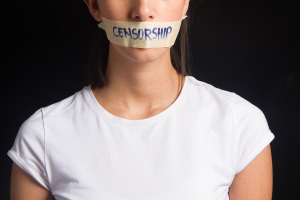China Backtracks Weibo Gay Content Ban After Backlash, But Not Before Trying to Delete Posts Supporting Policy Reversal
Weibo will no longer be banning content it related to homosexuality after being hit by major backlash for its latest policy.
Last Friday, one of the largest microblogging sites in China announced that it will be taking away content "with pornographic implications, promoting bloody violence, or related to homosexuality" in the next three months.
This is part of their efforts to abide by the 2017 cybersecurity rule for stricter data surveillance. Around 50,000 pieces of content were removed on the same day of the announcement.
The move clearly did not sit well with the LGBT community in China and its supporters. As a protest, users flooded the site with photos of them and their partners accompanied by rainbow emojis and the hashtags #iamgay and #iamgaynotapervert.
A post of one user, who is the mother of a gay son, felt that Weibo is basically "discriminating against and attacking this sexual minority" for banning gay content.
Other users reminded Weibo of the country's constitution and laws about the protection of minorities, and how a citizen's "personal dignity" is "inviolable" and therefore should not be subject to insult such as the policy.
Following the outcry, Weibo released another statement Monday announcing the reversal and the renewed focus on the crackdown on pornography and violence instead.
"This time, the cleanup of anime and games won't target gay content. It is mainly [meant] to clean up content related to pornography, violence, and gore. Thank you for your discussions and suggestions," the site's statement reads.
Weibo did not immediately crack though. It appears that the site deleted posts and banned searches related to the policy and the protest against it before it ultimately succumbed. Users persisted and just posted moree every time the site deleted anything they shared that support the campaign.
Feminist Voices founder and activist Lu Pin believes that Weibo's change of mind brought about by the online protest is a sign of the growing acceptance of the gay community in China.
"China's gay community continues to push through obstacles. The growth around the world in support for gay rights has also given the Chinese strength," Lu said as per The Guardian.
The fact that it was made possible by people deciding to come together and fight for their rights makes this situation especially unique and therefore promising to the Chinese LGBT community.
However, online protests do not always go this way. The social media flare-up caused by Chinese president Xi Jinping's removal of term limits did not have an impact and led to a larger scale of censorship.
China has always been fickle when it comes to tackling homosexual content. For one, it recently removed "Call Me By Your Name," an Oscar-winning film that tells the story of a gay summer romance, from the Beijing International Film Festival.
A government-affiliated organization called China Netcasting Services Association also considered homosexual content as something that does not adhere to the "core socialist values" it wishes to adhere to.
What's clear is that China is doubling down on regulating online content. Weibo had to take down several portals with "vulgar" and harmful" content last January, as ordered by authorities. In line with this, 128,000 websites were closed down.




























